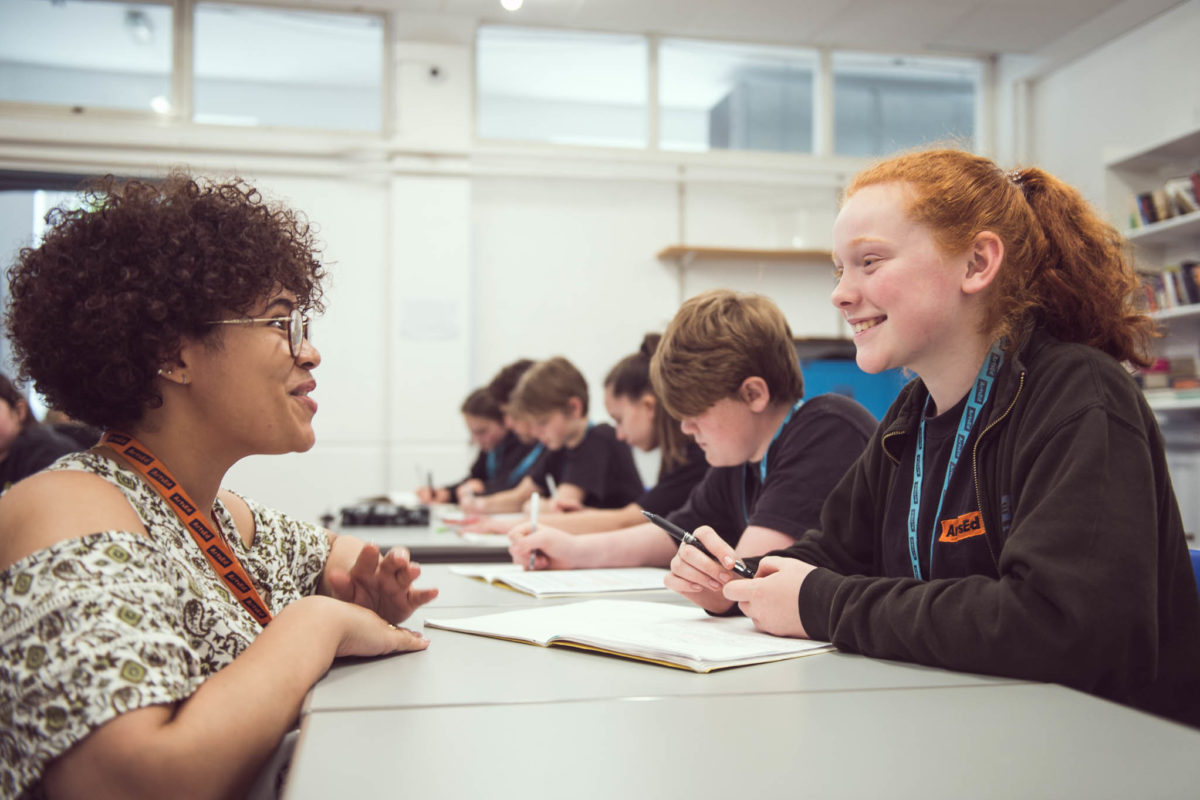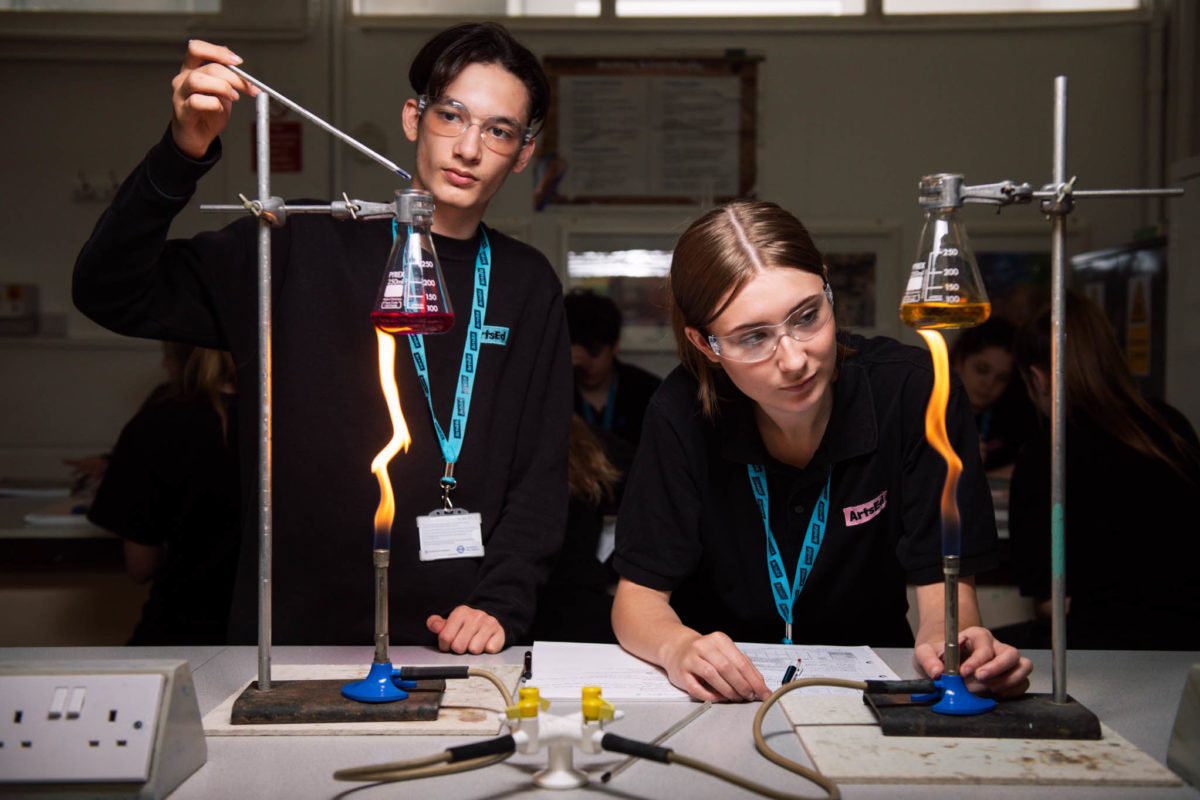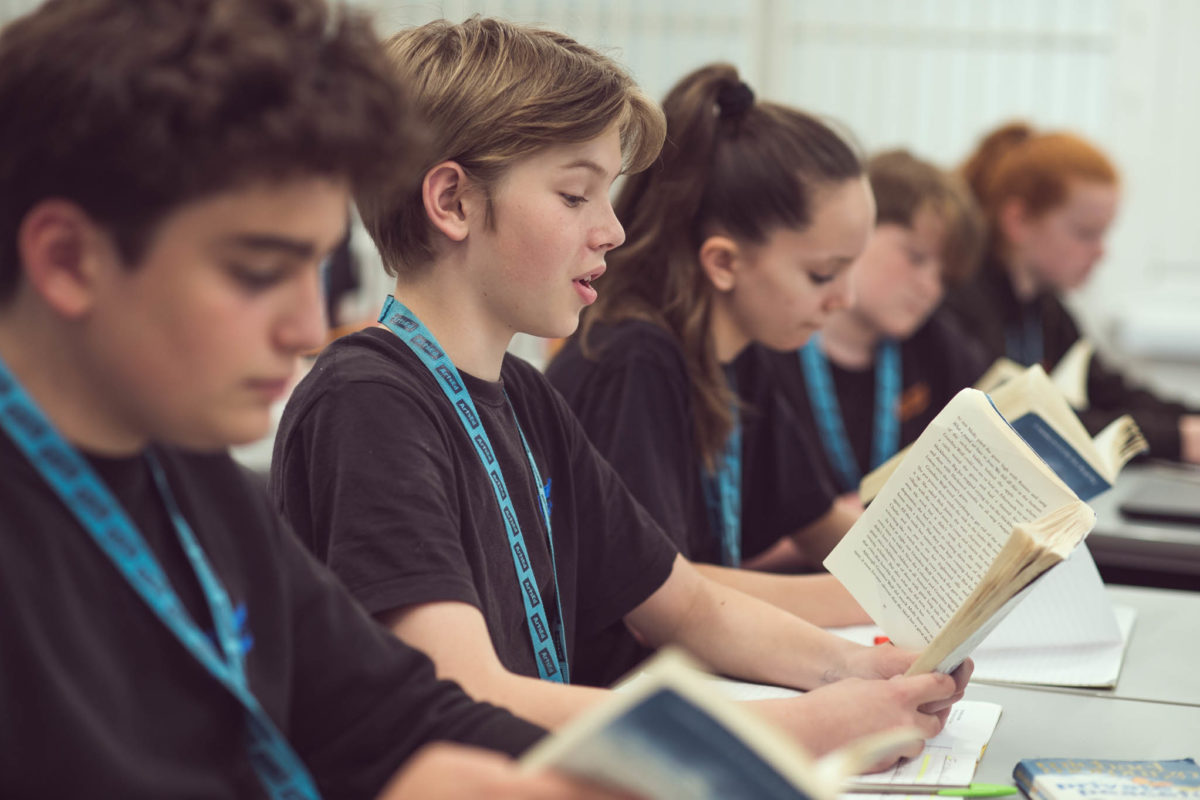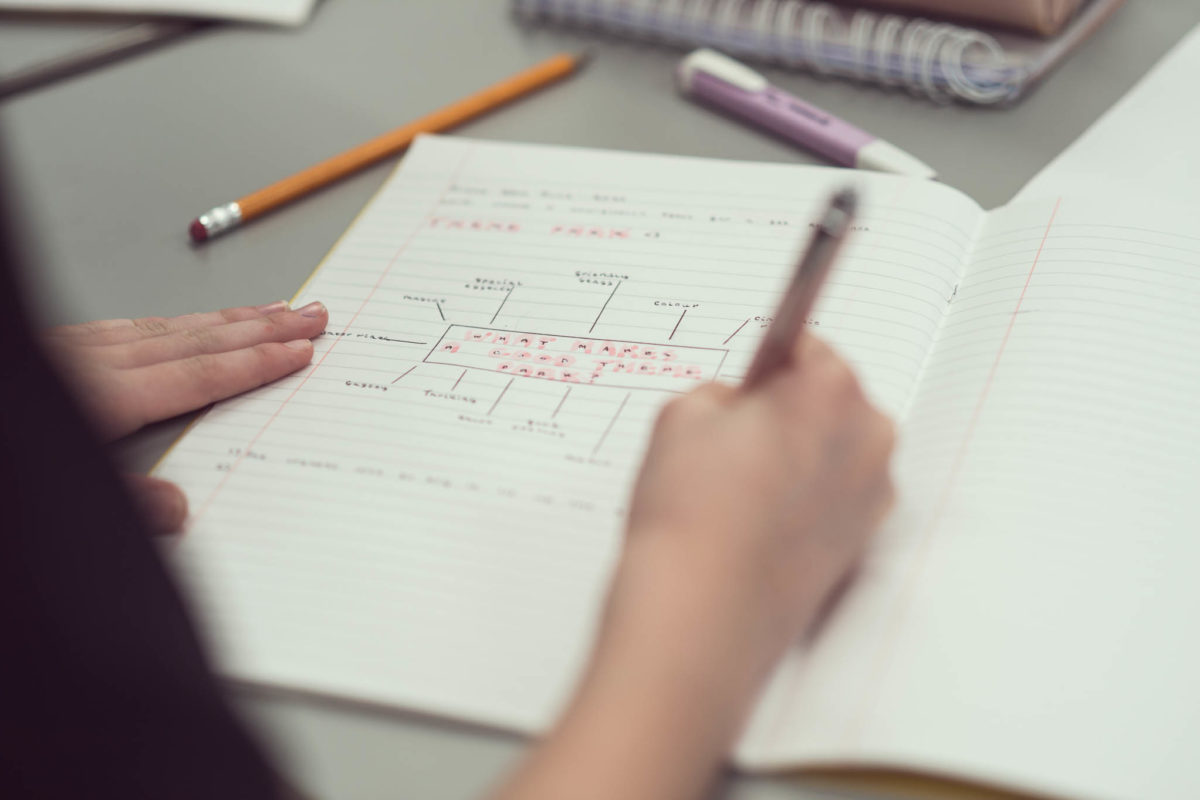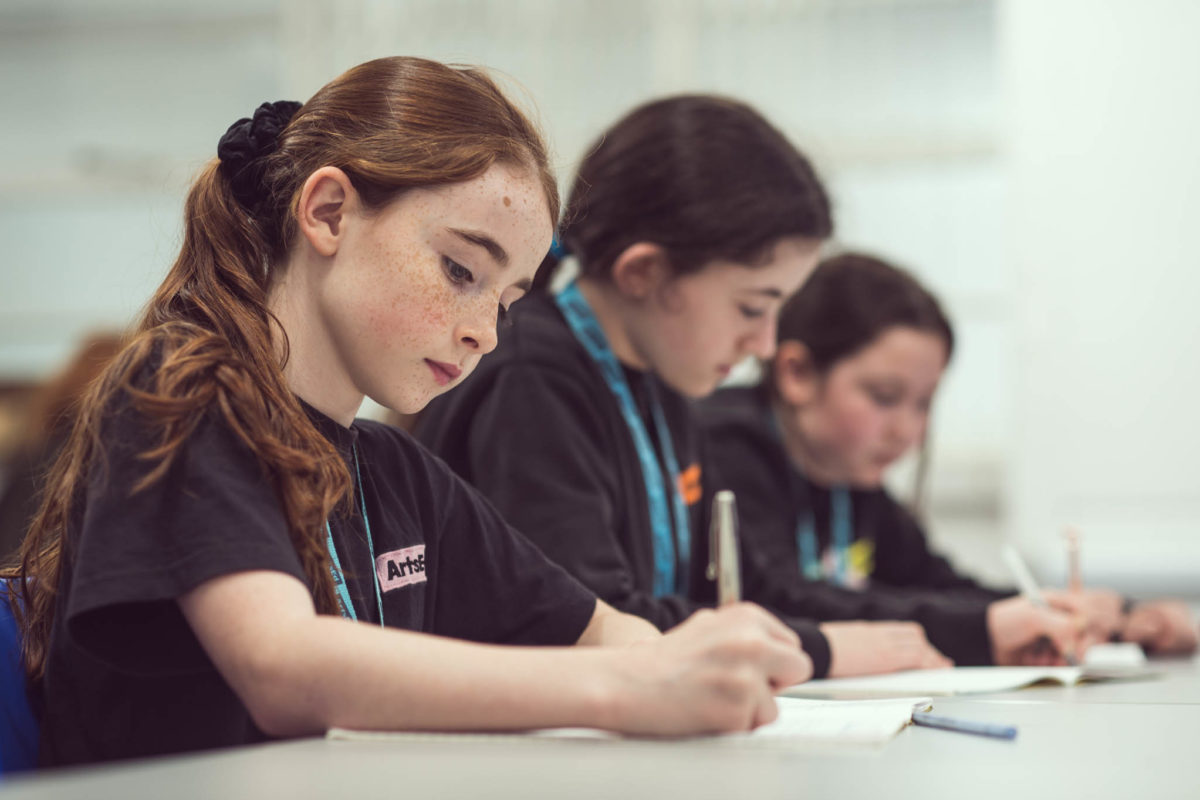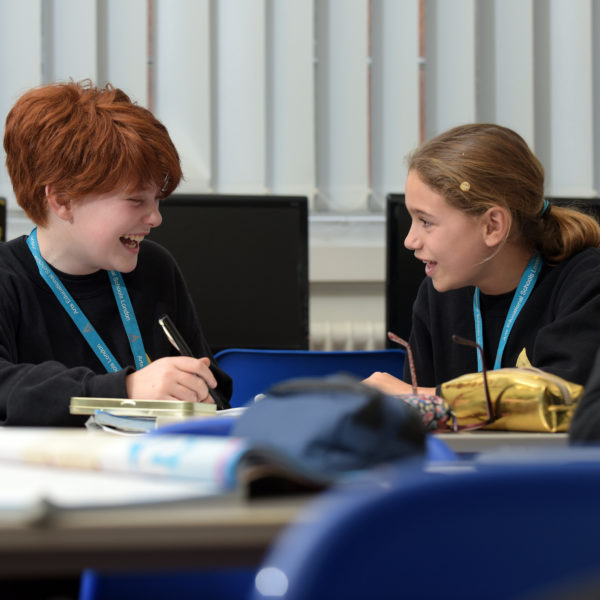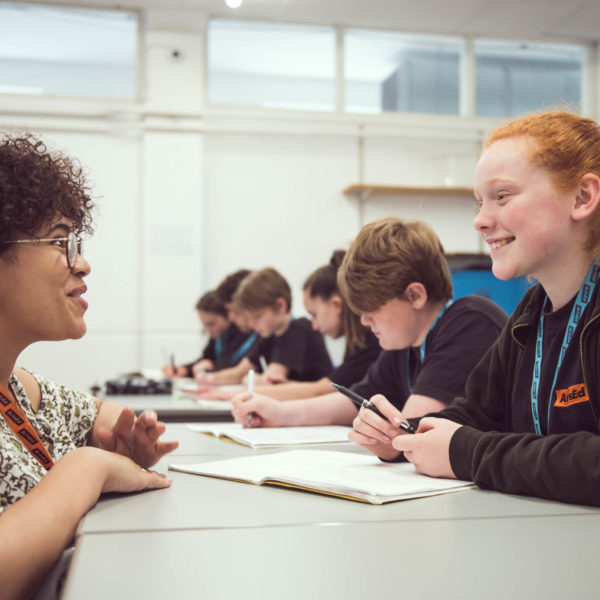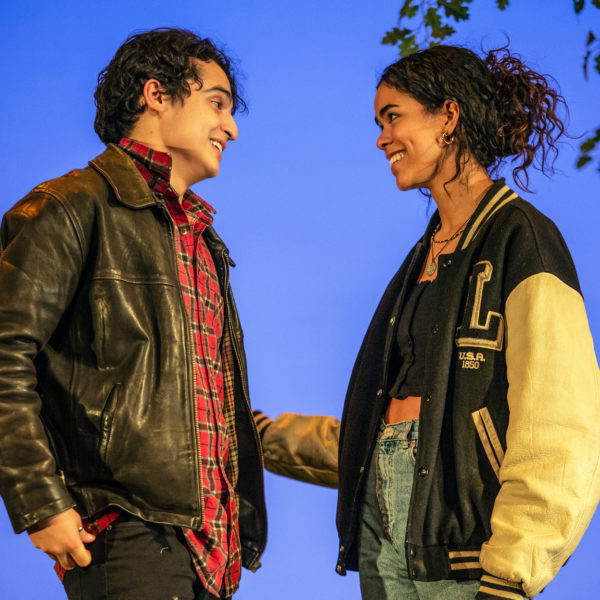
Vocational
Expert tutors, many with industry experience, encourage and support pupils to realise their full potential in Dance, Drama and Music. Pupils develop their individual talent, gain essential team-working skills through ensemble work, and emerge as self-assured and poised performers.
Dance at ArtsEd is a challenging and exciting course that develops our pupils technical and performance skill set in all areas. Focusing on versatile and all-round dance training, we also encourage and nurture our pupils’ individuality, self-confidence, and resilience while igniting and fuelling their passion for the art of dance.
Our unique timetable enables our pupils to develop their skills in all core techniques. Pupils receive weekly classes in Classical Ballet, Modern Theatre and Tap Dance, Contemporary Dance, and Acro skills. As their skill set develops, Pointe work and Jazz Dance Techniques are also introduced into their weekly classes.
Throughout the year, pupils participate in workshops led by industry professionals and guest teachers. In the past, these have included Commercial, Hip Hop, Street Dance, Acro Skills, and Lyrical. GOSE Dance is introduced in Year 9, which helps them develop their own choreographic voices as well as enhancing their analytical skills, appreciation of professional works, and ability to use dance terminology and choreographic devices with confidence.
All pupils are assessed in technical skills-based classes during the Autumn and Summer Terms. In the Spring Term, their schedule includes rehearsals for our annual Dance Show, which is a highlight for all Dance Course pupils.
Pupils can also take RAD Ballet and ISTD Modern and Tap Dance Exams, which are accredited by OFSTED and award UCAS points.

Our Drama course is both creatively fulfilling and intellectually demanding. Pupils develop their individual performance skills alongside invaluable literacy and communication skills. At the same time, they broaden their knowledge of culture and society, and their understanding of successful teamwork.
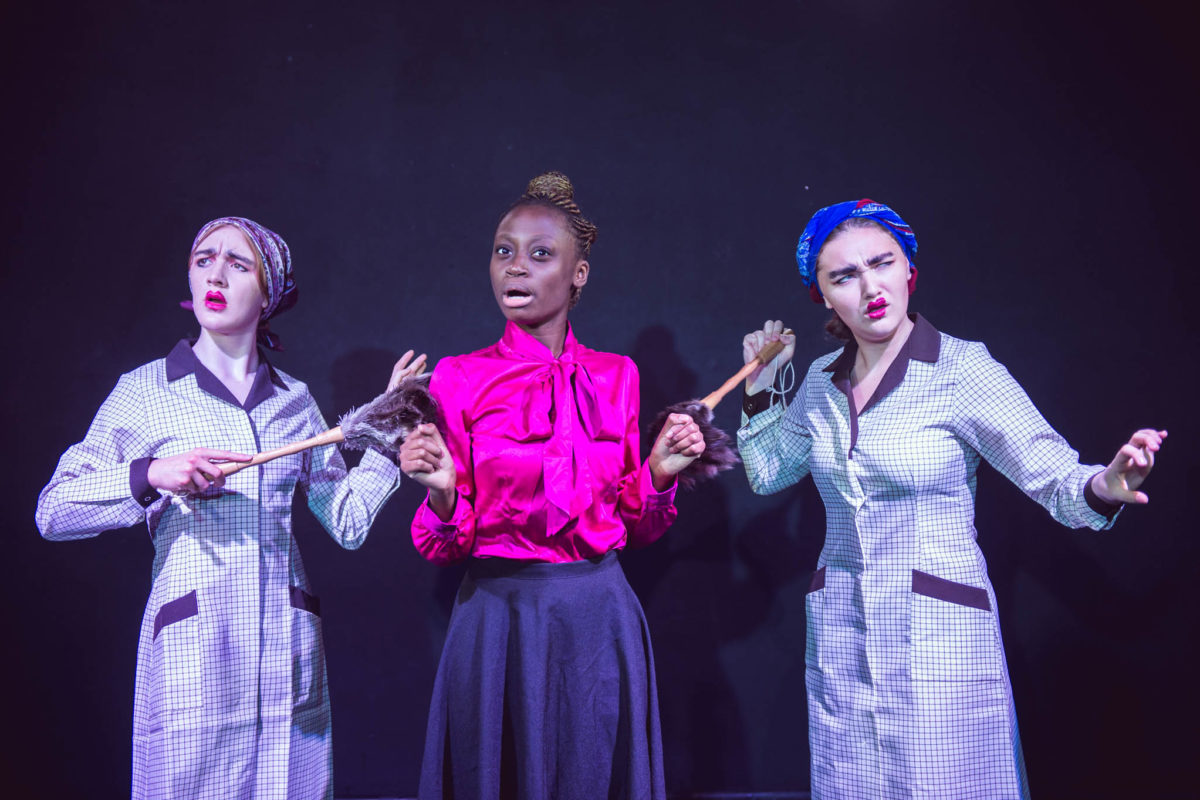
In Year 9, pupils start working towards their GCSE, building on the many disciplines developed in Years 7 and 8. They experiment with physical and expressionistic theatre, stylised and abstract work, naturalism, comedy, musical theatre, and text and off-text work, as well as devise and create their own pieces. There is a significant amount of written work, which is well balanced by the practical elements.
There are numerous opportunities for pupils to perform, including our own Pupils Showcase and the Independent Schools Association (ISA) Drama Festival.
Musical Theatre at ArtsEd gives pupils the opportunity to develop skills in singing, dance and acting alongside a GCSE in either dance or drama. Our pupils have professional industry experience as performers, directors and vocal coaches and have crafted a programme designed to stretch each pupil to their full potential.
Pupils opting to specialise in Musical Theatre will take classes in singing technique, singing ensemble, ballet, jazz, tap, and acting as well as performance workshops combining all three disciplines. Musical Theatre is a wide reaching and rapidly developing art form and we pride ourselves on being at the forefront of this exciting industry.
The course is designed to prepare pupils for post-16 study in the genre as well to celebrate and nurture their creativity and individuality. There will be opportunities to perform in the school’s Music Concert, Dance Show and Drama Showcase, as well as in the Junior Musical Theatre production. Musical Theatre pupils will also be entered into Trinity College of Music group musical theatre exams as part of their training. Entry is by audition into Year 9 and we will be looking for performance quality as well as potential across the three disciplines.
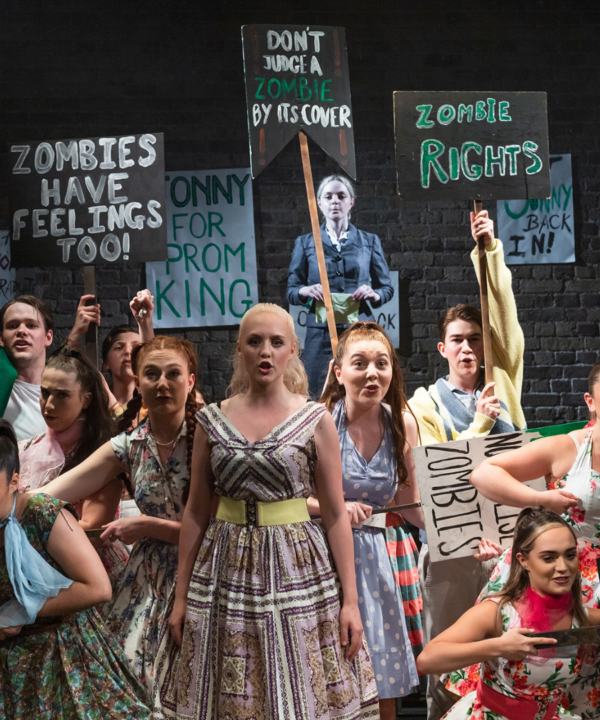
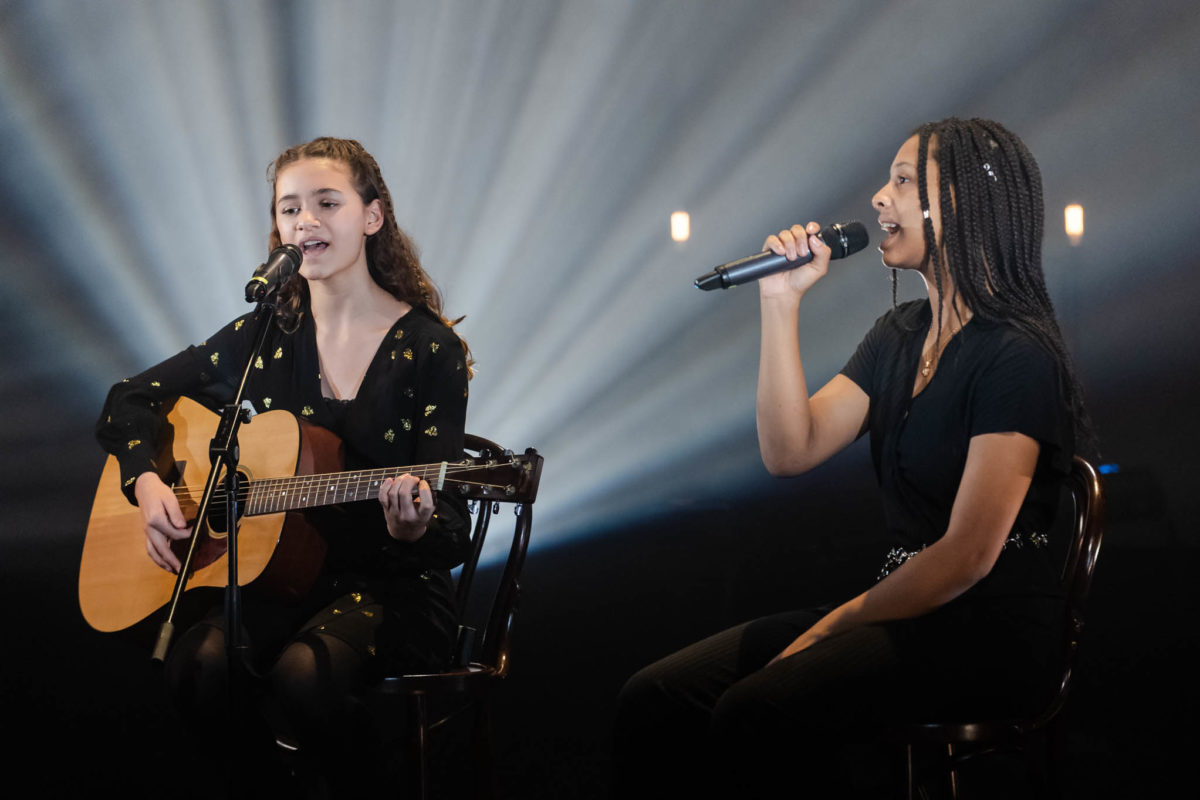
All our pupils engage in a wide variety of musical activities that enrich their creativity. Our highly experienced teachers develop each pupil’s passion for music, nurturing talent and fostering individuality.
Pupils are encouraged to explore a wide range of musical styles, while regular workshops and performance opportunities inspire them to develop their technique and extend their repertoire. Music theory lessons provide a solid foundation that allows composition skills to flourish. Singing, percussion and keyboards are all used alongside digital technology, including Apple Macs with full access to Logic Pro X and Sibelius.
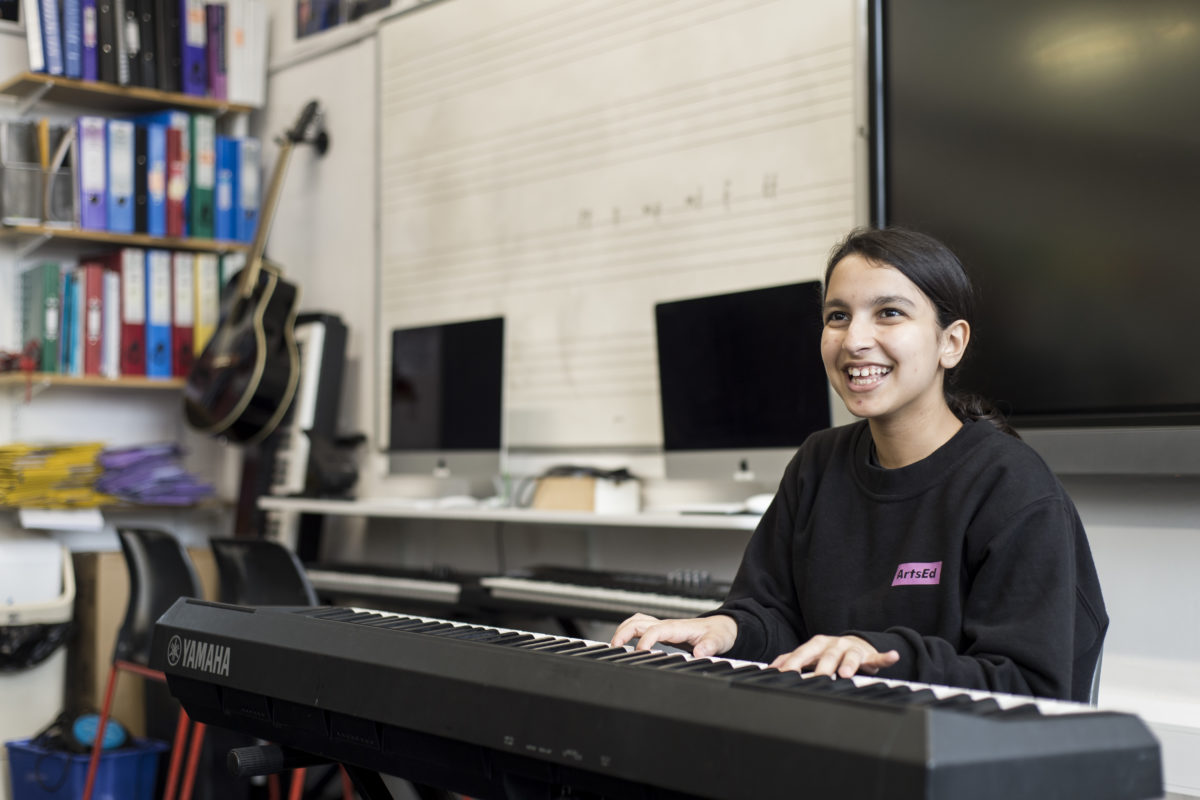
Additional vocal and instrumental tuition is provided by our pool of talented professional musicians who delight in sharing their passion for music. Pupils benefit hugely from the opportunity to work on a 1-2-1 basis, and these weekly lessons are highly subscribed.
All pupils in Years 7, 8 and 9 sing as part of a choir, as do pupils who choose to study GCSE Music. Performances from the choirs are a highlight of our annual Music Concert. Other performance opportunities include the acoustic Live Lounge in the summer term.
Our Visual Arts Department encourages experimentation, inventiveness and ambition. Pupils explore a broad range of approaches and working practices, and are encouraged to be creatively bold. In Years 7 and 8, pupils enjoy an art lesson every week, equipping them with knowledge and enthusiasm to choose a specialism for GCSE from our offer of Art & Design, Photography or Film Studies.
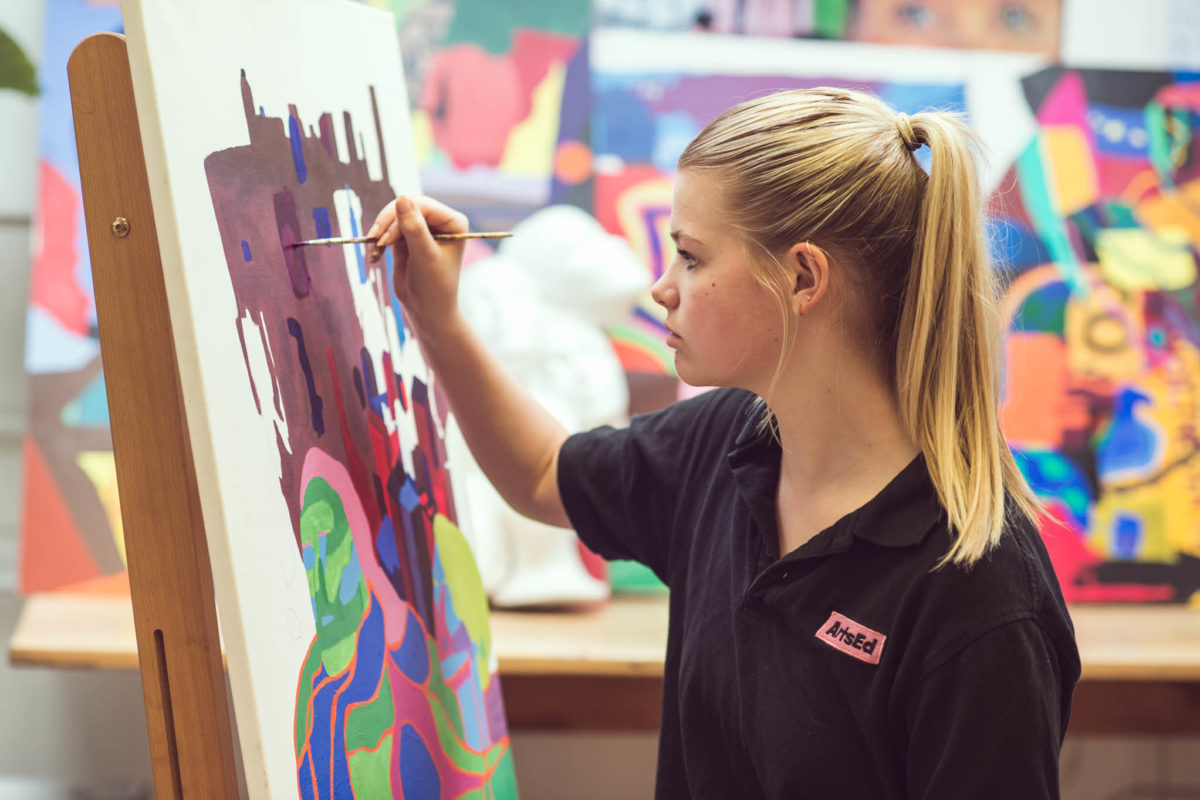
- Art & Design
Drawing, painting and printmaking form the foundation of the Art & Design GCSE. Pupils are challenged to consider the inspiration and context behind their own work whilst developing their creative practice. - Photography
During their GCSE studies, pupils respond to a set theme, exploring portraiture and landscape work, and developing their knowledge of composition alongside their technical skills. - Film Studies
GCSE Film Studies offers a thorough grounding in the theory of film, as well as giving pupils the opportunity to showcase a variety of skills in the production of their own short films. Pupils enjoy exploring a diverse range of critically acclaimed films on a course that is creative, practical and inspiring.
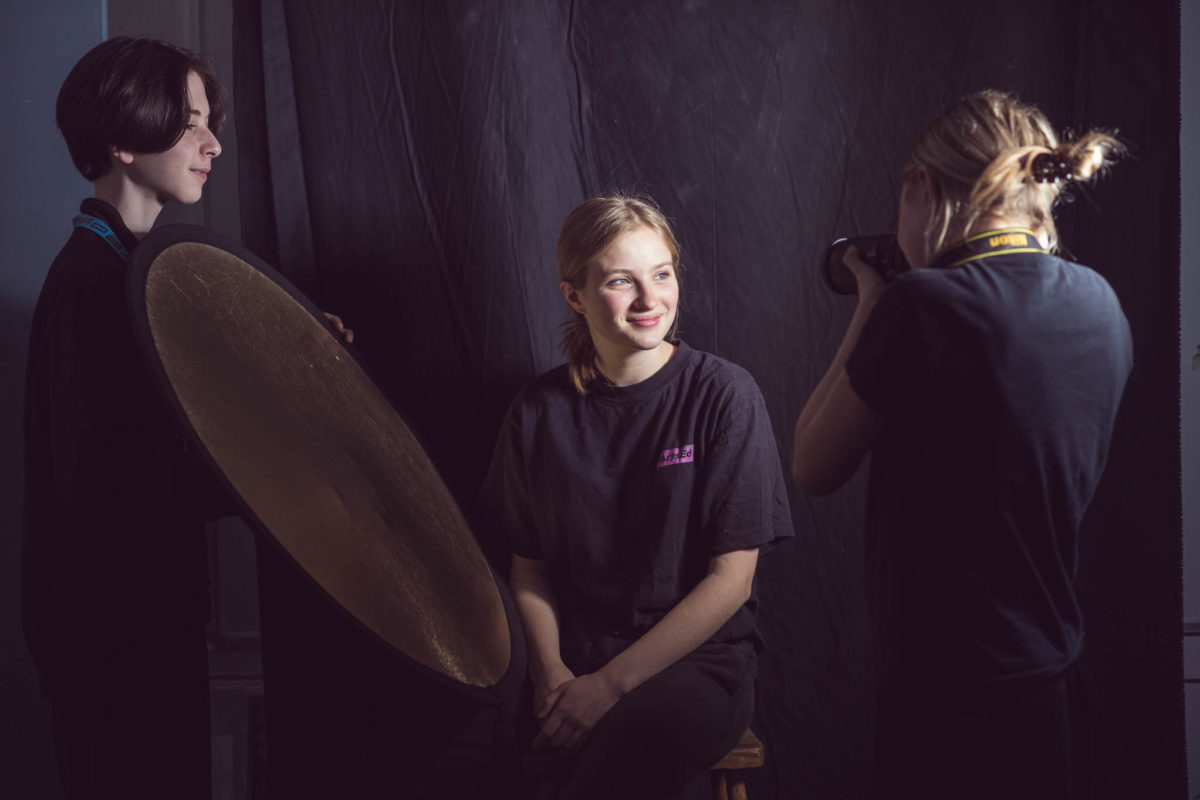
“Employers are looking for good people skills, their ability to work as a team and to present themselves confidently. This is why arts subjects are so important in later life – they give children the skills they need to succeed later on.”
– Parent
